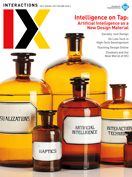Authors:
For an English graduate who read avidly for pleasure through school and university, I am disappointed in how little I read these days. I am tempted to claim I write more words than I read, especially if we include university administrative writing. I have reached a point where I feel that as long as I buy the books I care about and pay the royalties, I have done enough to show my appreciation of them. Reading them is a whole other matter.
Atypically, you find me deep in sci-fi. The book is Crashing Heaven by Al Robertson, given to me by the author at an event I ran on counterfactual worlds and the design of innovation. Inspired by Philip K. Dick's The Man in the High Castle (another novel I read recently for work) and other fiction in which the Axis Powers win the Second World War, the day was structured to give people parallel worlds to imagine, fill with novel technologies, and then consider as a play of tools and values. Al was a participant in the workshop; by the end, he had co-constructed a universe in which the British Reformation never happened, sin-o-meters abounded, and all electricity was controlled by the Pope. For my part, I was about to plunge into a world of artificial intelligences and giant spaceships, where dead people sing and puppets can run your brain.

Mostly, when I get books (and I love to buy them), they sit in a queue to wait till I go on holiday. Because I will see Al again quite soon, his book jumped the other non-academic hardbacks waiting for me (Johnny Marr's autobiography on his incredible musical career Set the Boy Free and Robert MacFarlane's lyrical walking reflection The Old Ways). I am curious about his work. And I am grateful for his gift. As usual, obligation is driving my reading choices. But it is also reminding me how much I love to read fiction; the story has caught me and I am really happy to be back in a page-turning alternative reality.


I was about to plunge into a world of artificial intelligences and giant spaceships, where dead people sing and puppets can run your brain.
In the other corner is the pile of academic books that I keep meaning to open. Top of this pile is the weighty Oxford Handbook of Process Philosophy and Organization Studies. It is about time that I learnt of ontologies that are not object-oriented; I write so much about process, relations, and states that change. Still, I'm not quite there yet with this one.

Joining it is a slim new volume by Luce Irigaray, another philosopher of becoming, entitled To Be Born. I bought it from the author last week, almost as a memento, after listening to her introduce her phenomenology of birth. She was visiting the University of Sussex for a conference in her honor, and sharing a new conception of what it is to come into the world and how best to nurture that arrival. Having heard the gist of it, I will probably only read it if I need to quote her, much as I would like to settle down with it.

Instead, I will be reading a colleague's working paper on "Deep Transitions: Emergence, Acceleration, Stabilization and Directionality" (Johann Schott and Laur Kanger) because it will be useful in framing how I talk about vulnerabilities in current technology development in an application for research funding that I am preparing. It seems all my academic reading at the moment is on change.
Ann Light is professor of design and creative technology at the University of Sussex in Brighton, U.K., where she leads the Creative Technology Research Group. [email protected]
Copyright held by author
The Digital Library is published by the Association for Computing Machinery. Copyright © 2017 ACM, Inc.








Post Comment
No Comments Found